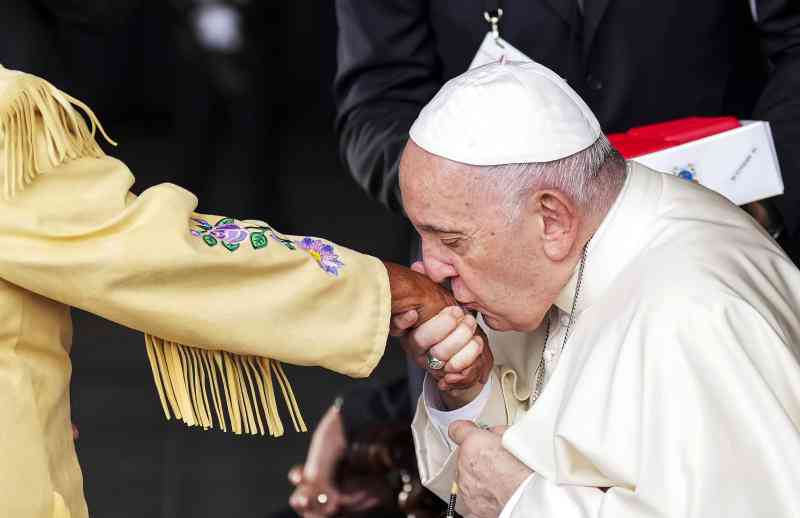
"In the face of this deplorable evil, the church kneels before God and implores his forgiveness for the sins of her children. I humbly beg forgiveness for the evil committed by so many Christians against the Indigenous Peoples."
These are the words of Pope Francis in his repentance pilgrimage to Canada. It could be argued that the crimes done are buried too deep in the past to matter. Stirring ghosts of the past is risky because there is little control on the haunt they would cause. The contemporary generation having not been direct victims can be assumed to feel the historical pain less. Others can critique the Pope's visit as merely an act with little consequence. But the Pope went any way. Why? Because there is a dimension of the good life that is strictly delivered through the conduits of repentance and forgiveness. Repentance and forgiveness are relationship stabilizers. For both to be achieved, humility is necessary. Pride makes either impossible.